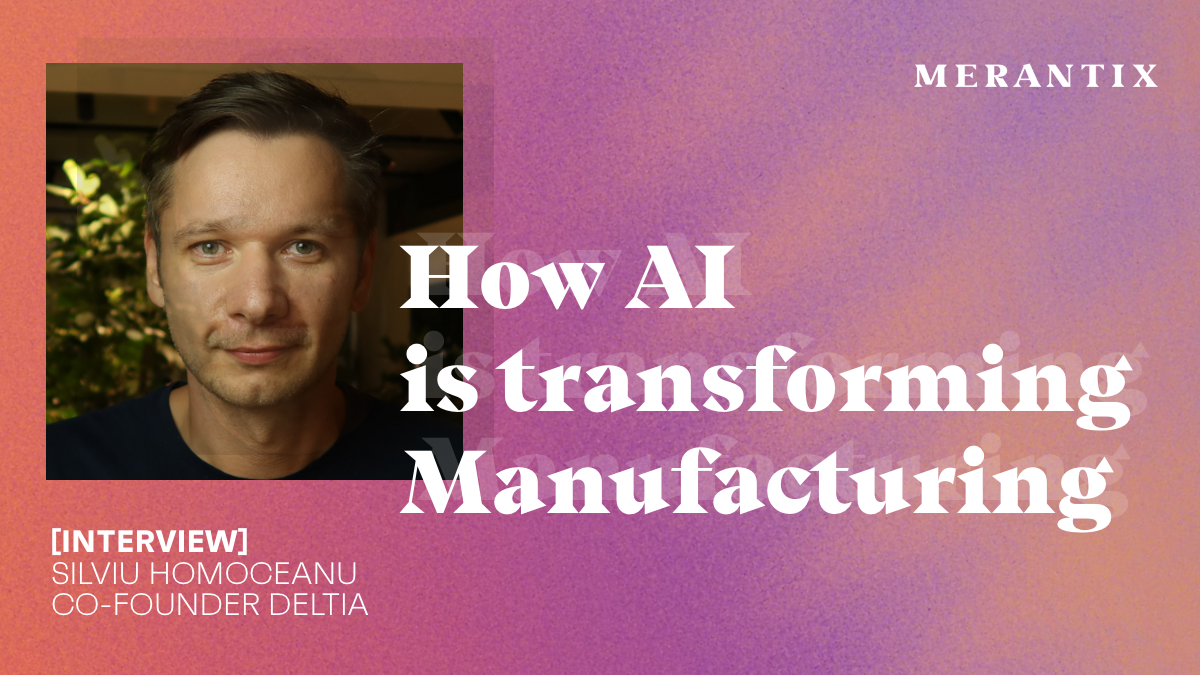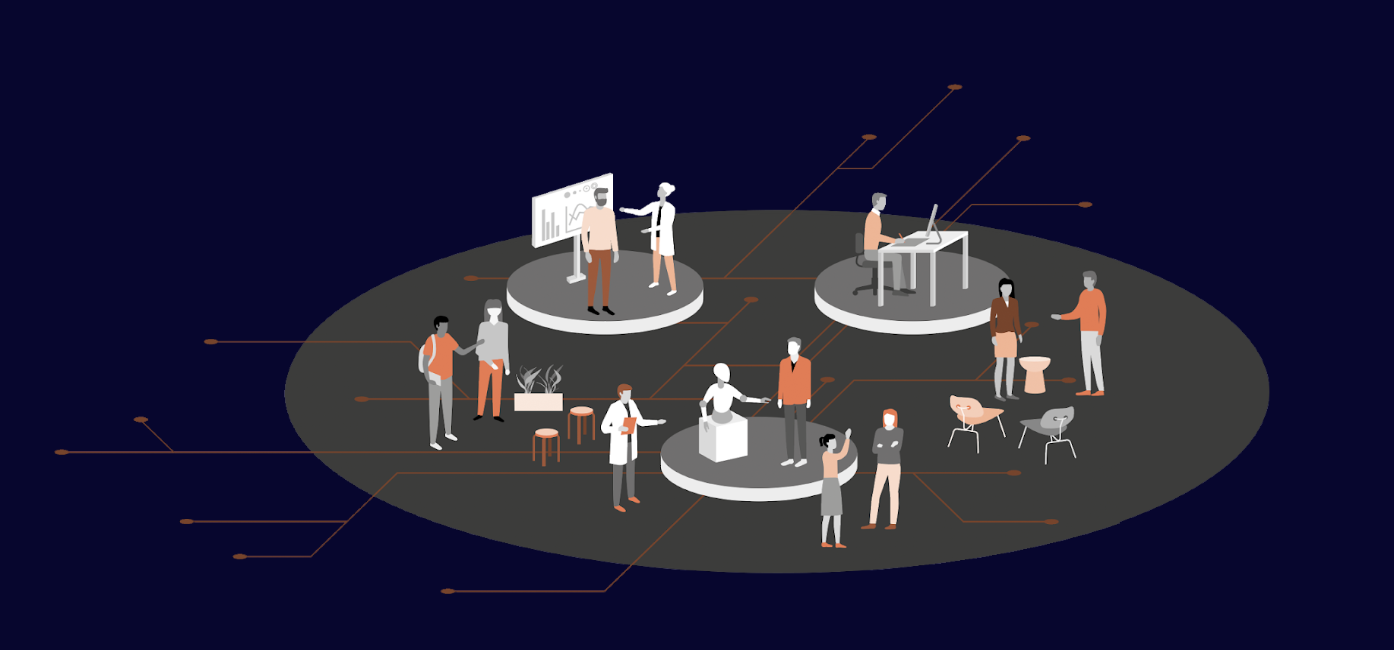How AI is transforming Manufacturing

In this article, I will talk about the manufacturing industry, which constitutes a keystone sector of the global economy. Its contributions span direct economic impact, indirect benefits through supply chains, and infrastructure development. Improvements in manufacturing processes have far-reaching ripple effects that permeate the entire economic landscape, driving enhanced productivity, increased competitiveness, environmental sustainability, and workforce transformation. Hence, we can secure long-term sustainable economic growth through innovations within the manufacturing sector. To write this article, I talked to Dr Silviu Homoceanu, an expert for the intersection of AI and manufacturing. He recently co-founded Deltia, a venture that is using Computer Vision and Edge AI to optimize assembly line processes. The article is based on this interview.
Opportunities for AI
Assembly line processes constitute a prime use case for AI. As Homoceanu pointed out, a significant portion (about 90%) of assembly processes in industries, such as automotive, is still manual. Companies typically optimize their assembly lines yearly by employing external consultants, who manually observe and note workers' activities, which is an expensive, biased and error-prone process. Deltia aims to automate and optimize assembly line processes using computer vision and AI to address this issue. They install vision-based sensors, such as cameras, at production line stations and use neural networks deployed on powerful, on-site devices to extract metadata about workers' activities in a privacy-preserving manner. This metadata provides information on production cycle durations, anomalies, activities, logistics, and supply chain issues. Deltia collects and presents this shop floor analytics to line and production managers, enabling them to optimize assembly lines more effectively.
Besides assembly line optimization, there are many more AI use cases within the manufacturing industry. Other applications include predictive maintenance, quality control, supply chain optimization, and energy efficiency. Machine learning algorithms can analyze vast amounts of data from sensors, cameras, and other sources to predict equipment failures, detect product defects, optimize supply chains, and identify opportunities for improved energy usage.
Furthermore, AI-driven robotics and cobots (collaborative robots) have the potential to revolutionize the manufacturing industry by working more efficiently and safely alongside human operators. Machine learning can enable these robots to learn from their environment and adapt to changes, enhancing their performance and reducing the need for manual interventions.
In conclusion, the application of AI and machine learning in the manufacturing industry is poised to transform various aspects of production, resulting in increased efficiency and enhanced product quality. As AI continues to advance and integrate into manufacturing processes, the industry will undoubtedly reap the benefits, driving long-term economic growth and strengthening its position as a keystone sector in the global economy.
The current state of manufacturing
The manufacturing industry is at varying levels of digitization, with some sectors, such as the chip-producing industry, being highly digitized, automated, and data-driven. A high level of digitization enables proactive action based on data analytics. On the other hand, the automotive industry has made significant investments in digitization. However, as mentioned above, the final assembly still involves a considerable human element, with manual and offline processes.
If we look towards small and medium-sized enterprises (SMEs), the level of digitization decreases further. Some SMEs have machines capable of producing data but may lack the knowledge to extract and utilize the data effectively. Many companies still rely on manual processes, clipboards, and paper-driven workflows. Some SMEs are attempting to introduce digital solutions, such as iPad-based systems, to collect cycle statistics and process performance data. However, more than these methods are needed to ensure high process quality and tap into the potential of an entirely digitized factory.
Market pressure is pushing companies towards digitization, especially in regions like Europe and Germany, where labour costs are higher. However, SMEs are increasingly aware that they must digitize, automate, and optimize their processes or risk losing competitiveness. This loss of competitiveness could result in workforce reductions and shifts in production sites to more cost-effective locations. This pressure drives increased interest in closing the digitization gap between SMEs and larger companies already implementing extensive digitization in their processes.
Innovating in a traditional industry
Often entrepreneurs experience significant pushback if they try to innovate in a conservative industry like manufacturing. But, according to Homoceanu, gaining acceptance among established players is possible if you have a deep understanding of the industry and empathy for the people who work there.
Despite manufacturing being a traditional industry, most people within the sector welcome AI innovations. The growing popularity and awareness of AI technologies, such as Chat-GPT or autonomous systems, have made the integration of AI more acceptable in the manufacturing space. However, there is some fear among workers, who may worry that AI technologies could replace them or invade their privacy. To address these concerns, companies must be transparent about their intentions and communicate that AI will be a copilot or assistant for workers rather than a replacement. In order to increase transparency and alleviate fears, one approach that we at Deltia are taking is to provide workers access to our system.
There is ample room for more entrepreneurs to enter the AI-manufacturing scene, as manufacturing significantly contributes to the global GDP. SMEs, especially, could benefit from increased support to democratize access to technology. By helping SMEs to become more efficient, entrepreneurs can contribute to making products more affordable. As the foundations of AI evolve, more innovations can be expected in the manufacturing space. However, entrepreneurs should demonstrate benefits for SMEs from day one without expecting them to have highly skilled personnel in data analytics or AI.
For AI entrepreneurs to succeed in the manufacturing industry, they must be customer-centric and adapt their offerings to the sector's realities. In addition, they need to understand that SMEs may not have the resources or expertise to handle complex data sets or advanced IT infrastructure. By bridging the gap between the two worlds of AI and traditional manufacturing, entrepreneurs can unlock significant value and drive innovation in this crucial industry.

Read more

Apr 5, 2022

Sep 29, 2022

